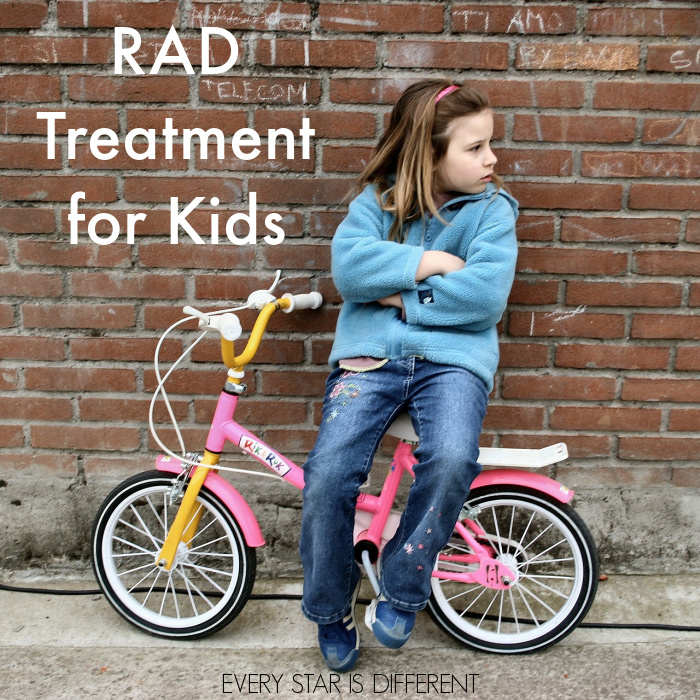It is a fact that children with Reactive Attachment Disorder have suffered past trauma.
Trauma can occur 365 days a year, including holidays.
The holiday season can be a mine field to navigate as a caregiver of an adopted child with RAD.
It's very rare for a caregiver to know about and understand past trauma their child with Reactive Attachment Disorder has experienced, until the child is able to communicate details.
Triggers may be everywhere and bring about unsafe behaviors no one was expecting.
Communication usually doesn't come until after triggers and unsafe behaviors, if it comes at all.
And even with that communication, it can take years for the child with Reactive Attachment Disorder to overcome past trauma and PTSD triggers during the holiday season.
So what is a caregiver to do?
Here are our best tips for handling past trauma during the holidays.
Reactive Attachment Disorder: Tips for Handling Past Trauma During the Holidays
Warning: This
page contains content related to Reactive Attachment Disorder that may be
triggering to some.
Important: Children with RAD are
victims of abuse and/or neglect. Behaviors associated with Reactive Attachment
Disorder are due to how the brain forms while the innocent child is surviving
trauma. It is our goal to support healthy and loving families where children
with RAD can heal, if possible.
1. Plan for Anxiety and PTSD Episodes
It is rare for a child with Reactive Attachment Disorder to make it through the holiday season without trauma triggers and/or PTSD episode.
Make a plan ahead of time.
Include your child with RAD if possible.
What will happen once the child is triggered?
Who will remain with the child?
Where will the child go to feel safe?
What items may be helpful in the moment to bring the child back to the present?
2. Prepare a Holiday Sensory Kit
When a child or adult is triggered by anxiety and/or past trauma, one of the best and easiest ways to help is through grounding and bringing the person back to the present.
In our home we do this through the use of a holiday sensory kit.
We have a holiday sensory kit that remains at home, and another for when we're on the go.
Included in the kit are items for each of the senses that are pleasurable.
These items help a child with Reactive Attachment Disorder to come back to the present, remember that they're safe, and start to be okay again.
A holiday sensory kit can make or break a special holiday event.
It can be pulled out the minute a child with Reactive Attachment Disorder feels uncomfortable and may prevent a full on PTSD episode.
If a PTSD episode occurs, the holiday sensory kit may be the thing that brings your child back to the present with you.
3. Accept that Avoiding Triggers is NOT an Option
Christmas is EVERYWHERE.
There is no way to avoid triggers related to past holiday trauma.
Accepting this reality is key to future healing.
So much of working through past trauma on holidays is desensitization through multiple positive sensory experiences that outweigh the negative ones of the past.
For children this can occur in so many different ways.
Holiday sensory bins and invitations to play may be helpful.
Hands on holiday fun where caregivers follow the child's lead can make a difference.
Incorporating Montessori into the holidays can promote independence and helps empower the child with Reactive Attachment Disorder.
Again, you can't avoid triggers and episodes, but over time healing can occur.
4. Make a Holiday Plan that Works for Your Family
You may not be able to avoid all triggers, but you can lessen them if you feel that's what your family needs.
Despite what you may have been told, there is no right or wrong way to celebrate the holidays.
The goal is to make them as enjoyable as possible for all involved including the caregiver and the child with Reactive Attachment Disorder.
If your child with Reactive Attachment Disorder can't handle holidays with extended family yet, celebrate the main day at home and set up another time to spend with relatives when it's not too much.
Grandparent Christmas parties at our home occurred for this very reason.
A Nutcracker Themed Christmas Party
If your child with Reactive Attachment Disorder can't handle waiting until a specific day to celebrate, choose to surprise her and celebrate the holiday early.
I can't tell you how many years we celebrated Christmas in our home early because we knew our daughters with RAD weren't going to make it to the big day without unsafe behaviors.
If your child with Reactive Attachment Disorder struggles with receiving gifts, choose to handle that situation in a way that best fits the needs of your family.
How to Help a Child with RAD Receive Holiday Gifts
We have tried many different approaches over the years, based on the age and development of our adopted daughters with Reactive Attachment Disorder.
5. Create New Holiday Traditions Everyone in the Family Can Enjoy
Reactive Attachment Disorder can be extremely challenging during the holiday season no matter what.
There will be triggers and episodes of unsafe behaviors related to past trauma.
However, there's a pretty good chance that your child's past trauma didn't include every single holiday tradition out there.
Creating new holiday traditions can help with healing, especially when there are only safe memories attached to them.
Over the years the story of the nutcracker, our celebration of holidays around the world, and our Christmas movie countdown have become very healthy, safe, and enjoyable aspects of our holiday season.
All of our kids look forward to these aspects of Christmas each year.
Christmas traditions don't have to be big or elaborate.
The simplest experiences can often mean the most.
6. Remember that Healing is Possible and Circumstances are Temporary
It can be extremely difficult for caregivers and family members to witness and experience past trauma triggers and PTSD episodes from a child with Reactive Attachment Disorder.
Unsafe behaviors can be traumatic for all involved.
In these circumstances it can be extremely difficult to remember that things can get better over time.
It may take years or decades, but healing can occur.
Unsafe behaviors and changes to holiday plans aren't a forever thing.
What you're experiencing right now is just temporary, even when it doesn't feel that way.
Healing can occur.
Our family has learned to absolutely love our holiday season filled with traditions we've created throughout the years to help with anxiety and past trauma during the holidays.
We can't imagine going back to the way we were doing things before.
7. Acknowledge that Others Will Not Understand Your Circumstances
Unless you celebrate the holidays with others who have experienced past trauma, it is rare that others will understand unsafe behaviors related to triggers and PTSD.
It is also rare that others will understand your decisions and interventions as a caregiver in those moments with your child with Reactive Attachment Disorder.
So many are striving for the "perfect" holiday and aren't open to jeopardizing that.
Others may feel they know best and will attempt to intervene in the way they feel is best, which may lead to more trauma for all involved.
Be cautious about the situations you choose to place your family in during the holiday season with a child who suffers from Reactive Attachment Disorder.
You can not control when triggers and PTSD episodes will occur.
You can not control what others do or say when there are unsafe behaviors.
Choose to surround yourself with people who are compassionate and can help in a way that is beneficial when needed.
If you don't have support from others, find an online group that may be helpful.
8. Establish a Safety Plan for a Worst Case Scenario Situations Just In Case It's Needed
We all hope to make it through the holidays without an incident, but there's always a chance an incident does occur.
Be prepared.
The Worst Cases of Reactive Attachment Disorder
If there are two caregivers and other children, decide which caregiver will be the one to attend to the mental health emergency, and which one will attend to the other children.
If there is only one caregiver, be prepared to do what you need to do for you.
Ask ahead of time for extra support and understanding from extended family and friends, especially when they are involved in holiday plans.
Start with the most important aspect of the holiday celebration first, just in case an emergency occurs and you're unable to get through all plans.
Ensure that all safety protocols are in place.
Must Have Safety Resources When Parenting a Child with Reactive Attachment Disorder
PTSD triggers and episodes can become much worse when in an environment that is not prepared for such events.
Keep this in mind when traveling and visiting extended family and friends.
The effects of past trauma are real for a child with Reactive Attachment Disorder.
Your child with RAD is struggling with these effects as much as you are, if not more.
No one asks to experience trauma.
No one asks to have long lasting effects from trauma.
Be kind and patient.
Even though it may feel like it, your child with Reactive Attachment Disorder is not trying to ruin your holiday season.
Please understand that responses to past trauma are not the only reasons a child with Reactive Attachment Disorder may be struggling during the holiday season.
If you enjoyed this post, you may also like the resources below.

















No comments:
Post a Comment